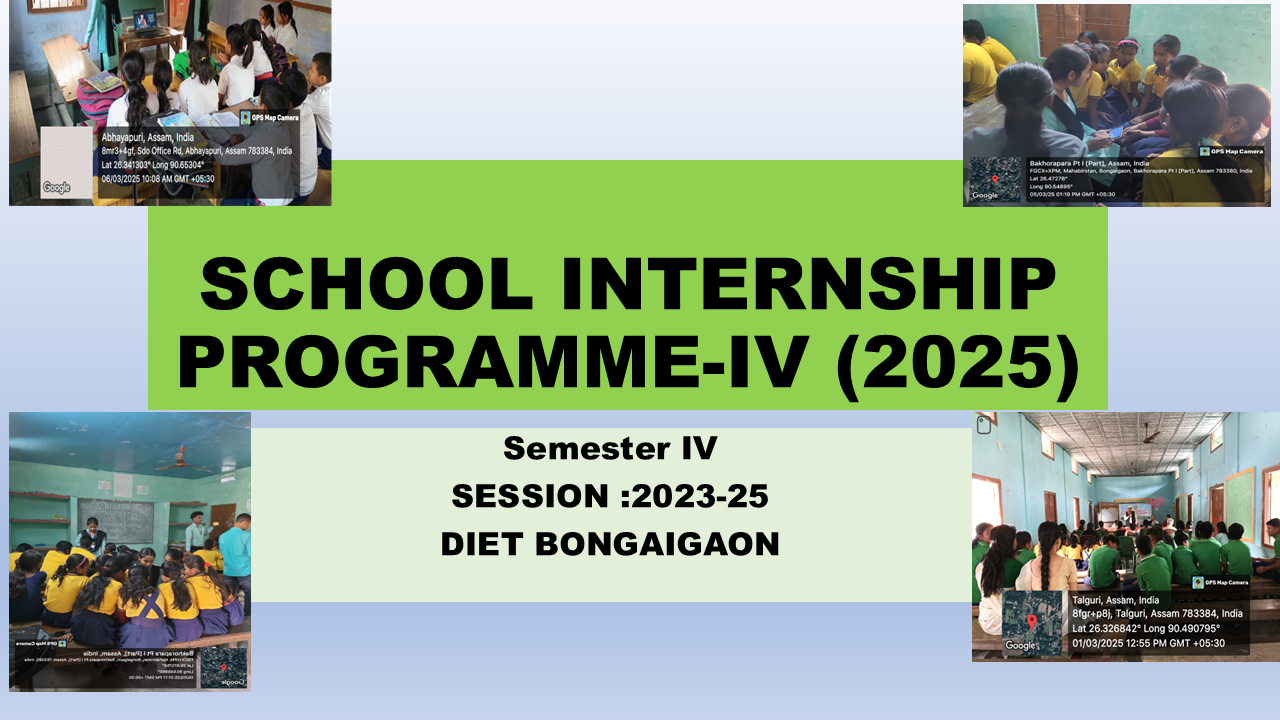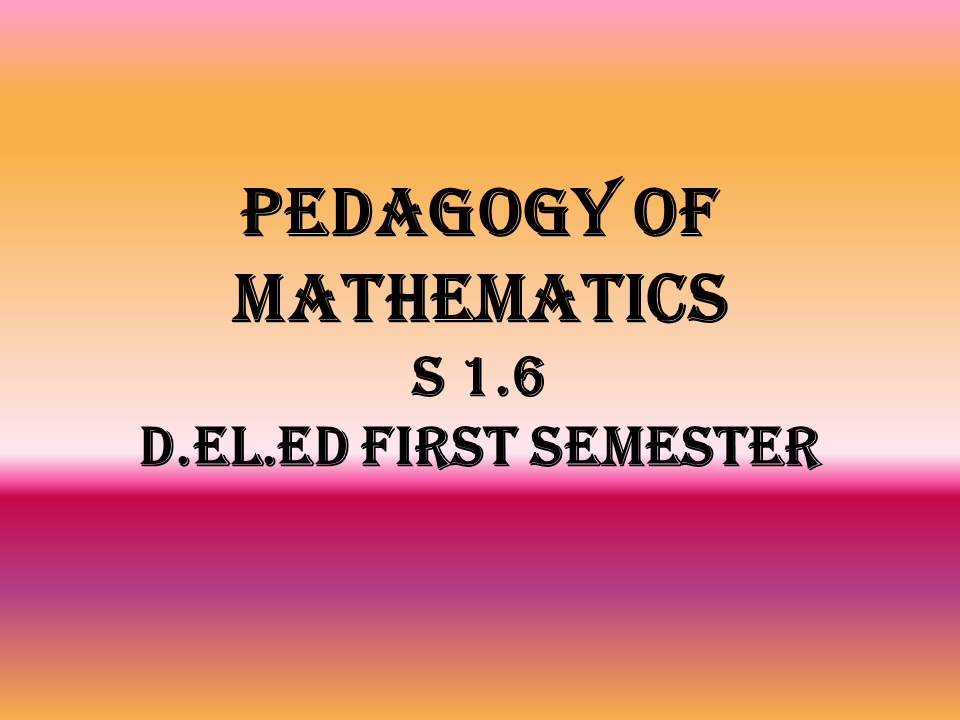
The school internship programme of D.El.Ed 4th semester will commence w.e.f 5th May. 2025
- Teacher: MRIDUL DAS
- Student: khanita adhikary
- Student: Mahnesh Ahmed
- Student: Mohibul Ahmed
- Student: KASHEM ALI
- Student: Dhitasmita Barman
- Student: NABOJIT Barman
- Student: Ranjana Barman
- Student: Bhanu Basumatary
- Student: Mili Basumatary
- Student: Swmdwn Basumatary
- Student: Nureja Begum
- Student: Babita Biswas
- Student: chandamita choudhury
- Student: Harka Bahadur Dangal
- Student: Queen Das
- Student: Sandhya Rani Das
- Student: SIMANTA DAS
- Student: Prosenjit Dey
- Student: Borasha Dutta
- Student: Bijit Goyary
- Student: RUBUL HOQUE
- Student: IMTIAZ HUSSAIN
- Student: SADDAM HUSSEN
- Student: Bobidul Islam
- Student: Abu Jakaria Ahmed
- Student: BIKASH MALLAH
- Student: Biju Moni
- Student: Jinti Nath
- Student: Sujata Paul
- Student: Ranjita Bala Rabha
- Student: Anamika Ray
- Student: Ankita Ray
- Student: Dhaneswar Ray
- Student: Gitanjali Ray
- Student: Gunabati Ray
- Student: Hirakjyoti Ray
- Student: Jonali Ray
- Student: Milimoni Ray
- Student: Nipumoni Ray
- Student: Ramkrishna Ray
- Student: Rimi Ray
- Student: Tikendrajit Ray
- Student: tripti ray
- Student: Satabdi Roy
- Student: Riki Sarkar
- Student: Sujan Sarkar
- Student: Sahajamal SK
- Student: khalidaziya Sultana

